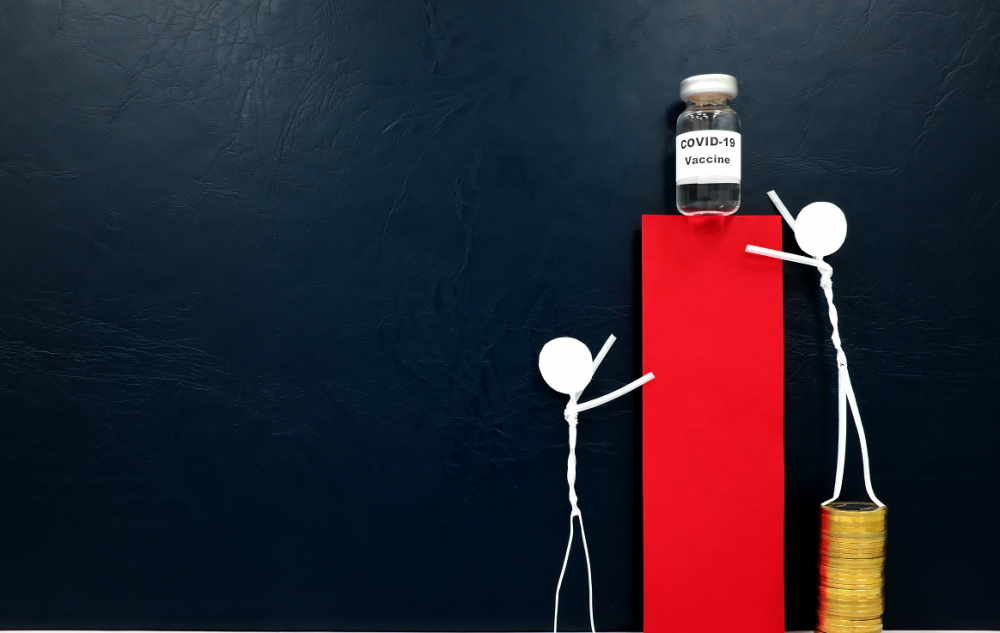
Researchers gathered last month in South Africa to consider how governments handled COVID-19 and how those choices led to deepening inequalities at all levels of society.
“The broad topic we had was ‘why corona is the great unequalizer’,” says Tor Halvorsen, associate professor of administration and organization theory at the University of Bergen and originator of Rising Inequalities (RISIN), which has funding from the World Universities Network (WUN).
The papers presented at the conference zoomed in or out according to this theme, from focusing on “the most excluded people on this earth,” says Halvorsen, “all the way to the intellectual property agreements that bypass international laws to make vaccine inequality grow.”
Specific examples of conference presentations include conflict within families, children’s education, access to water, the status of the homeless, and comparative looks at the national policies of Ghana and Uganda versus those of Norway. Presenters approached these topics from the fields of archaeology, global health, political science, and psychology.
The broad scope of the conference is reflective of the larger project, explains Tore Sætersdal, assistant director and academic coordinator in global challenges at the University of Bergen and principal investigator of RISIN. The team’s long-term goal is a book that links various levels of inequality resulting from the pandemic.
Perhaps the most devastating disparity is vaccine inequity among nation-states–a situation that only reproduces other inequities at smaller scales. At root are the international intellectual property agreements that offer people in wealthy nations access to vaccination while the rest of the world mostly goes without, say the researchers. Because distributing vaccines to lower-income countries isn’t profitable, those countries end up depending on the (largely unmet) promises of charitable contributions from other nations. To that point, Halvorsen cites a recent Oxfam report contrasting the massive profits of pharmaceutical companies that make the vaccines with the abysmal supply of vaccines to the world’s poorest countries.
Is there any hope that a future pandemic will result in less inequality? Hopefully, yes, say the researchers. It would take a greater sense of global citizenship, says Halvorsen, and for private pharmaceutical enterprises to have less power. Instead, higher education, including consortia like WUN, should play a larger role in generating and sharing knowledge to benefit the global public.
That may seem unlikely, but he and Sætersdal cite a historical example: as HIV and AIDS proliferated in India and Africa, patents and trade agreements restricted access to life-saving drugs. A drug-maker in India defied those strictures to create the three-drug combination for a small fraction of the cost. Despite a lawsuit led by the United States on behalf of the patent-holding companies, public outcry prevailed and access to the drugs saved millions of lives.
“I was in Mozambique at the time,” says Sætersdal. “That was a revolution.”
As for the current crisis, there is a long way to go. As of December 12, only 2.6% of people in Ghana, and 2.7% of people in Uganda are fully vaccinated, compared to 70.9% in Norway, according to Our World in Data. But, says Halvorsen, it was a positive surprise to see the United States support a World Trade Organization waiver from the intellectual property agreement TRIPS, a move that Norway, Sweden, and other nations oppose.
The conference took place at the University of the Western Cape. The group plans to gather again in South Africa in late 2022. They are also at work on a bibliography and are establishing a graduate-level academic exchange program between Norway and universities in the Global South.
WUN partner universities for “Rising Inequalities” are the University of Bergen (lead), the University of Ghana, and Makerere University.
